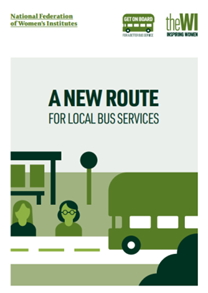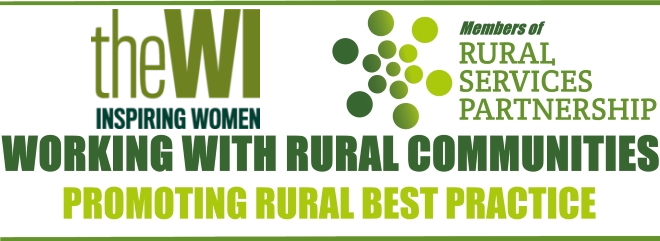T: 01822 851370 E: [email protected]
Visit RSN Survey about life in rural England to find out more.
New Report into the Impacts of a Reduction in Bus Services Published by The Women’s Institute
On 20 April, the National Federation of Women’s Institutes (NFWI) launched its new report: A New Route for Local Bus Services
 This forms part of the WI’s Get on Board campaign, which calls on the Government and local authorities to work in partnership with bus companies and community transport operators to enable an adequate provision of services.
This forms part of the WI’s Get on Board campaign, which calls on the Government and local authorities to work in partnership with bus companies and community transport operators to enable an adequate provision of services.
The new report aims to build understanding of the impacts of cuts to bus services on women and people living in rural areas and also explores the impacts of a significant reduction in local bus services on mental health, isolation and social exclusion, and sets out recommendations for future action.
The findings showed that only 18 % - less than one in five – of survey respondents living in rural areas in the UK say they have access to a frequent, reliable bus service. Furthermore, 25% of those respondents said that cuts to bus services have made them feel more isolated, and 19% said their mental health had been negatively affected. Cuts to bus services have also meant a decrease in being able to connect to other transport services and, as a result, 72% said that their dependency on using a car and reliance on family and friends had increased.

In response to the evidence, the WI is calling for:
- Ring-fenced, sustainable and long-term funding for local authorities to guarantee a minimum frequency of services for towns and rural areas and to enable local authorities to start planning for the future.
- Rural areas to receive an adequate share of the £3billion investment proposed to ensure they receive the support they need.
- Considerations made to modernise the Bus Services Operator Grant to include additional amounts given to rural areas as well as new incentives for demand responsive transport.
- Decision makers to consider the needs and travelling patterns of women in all future transport policy and developments, including Bus Service Improvement Plans.
- Decision makers to do more to ensure women are represented at decision making levels for transport planning, including on forums such as Bus Advisory Boards.
- Bus Service Improvement Plans to prioritise the integration of bus services with rail and other transport networks in order to increase the appeal of buses as an alternative to car usage.
- Investment in zero emission buses to not be limited to buses for towns and cities, but to support services in rural areas.
- Plans to modernise the Bus Services Operator Grant to include incentives for the take up of zero emission vehicles suitable for meeting the needs of all communities.
To read the report in full visit www.thewi.org.uk/nfwi-report-into-local-bus-services




